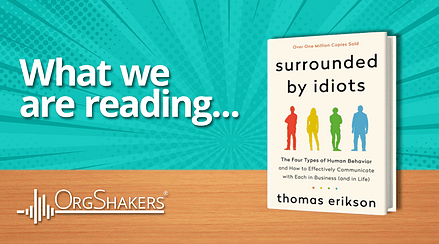Menu

Beware Wellbeing Washing
How was January for you?
As the new year begins, it is common to feel a bit of a slump after the festive period packed with traditions, colorful lights, and good food.
This feeling, known as the ‘January Blues’ or the ‘Winter Woes,’ refers to a general decline in mood, lethargy, or even a sense of depression during the first month of the year. If December brings a rush of adrenaline, January is when the reality sets in.
For most people, this feeling fades as they get back into the routine. However, for some, it can linger due to factors like financial stress exacerbated by the holiday season or the struggle with seasonal affective disorder (SAD) during the winter months.
For this reason, employers aiming to re-engage employees often use the ‘Winter Woes’ as an opportunity to focus attention on their wellbeing strategy. This makes a great deal of sense – but it is important to maintain and build upon this momentum rather than let it wane as the year goes on.
And, let’s be honest, we can all be a bit guilty of this at this time of year! Some of us will have signed up for that new gym membership and started taking part in Veganuary only to discover that these resolutions quickly fizzle out. Suddenly the gym membership is just another card cluttering your wallet – and no amount of carrots and hummus can stop you daydreaming about cheeseburgers!
The corporate version of this is a phenomenon known as ‘Wellbeing Washing.’
‘Wellbeing Washing’ occurs when companies express their commitment to mental and physical health but fail to demonstrate this consistently through their actions and practices.
And it’s more common than you might think. Indeed, one study found that more than a third (35%) of businesses are perceived by their employees to be wellbeing washing.
To avoid this pitfall, consistency and clarity are key. Wellbeing has gained significant importance on the corporate agenda, especially in the post-pandemic era. Employers must ensure that their efforts to support the physical, mental, social and financial health of their workforce are consistent throughout the year.
While happy, healthy workers naturally contribute innovative thinking and productivity, a study by Mind found that 60% of employees believe that employer-led wellbeing initiatives would increase their motivation and the likelihood of them recommending their company as a great place to work.
So, in the same way employers should be committing to redouble their wellbeing efforts as they move through January; as we begin February they should be committing to maintain that effort through the year ahead.
If you would like to discuss how we can assist your business with its wellbeing strategies, please get in touch with us.



